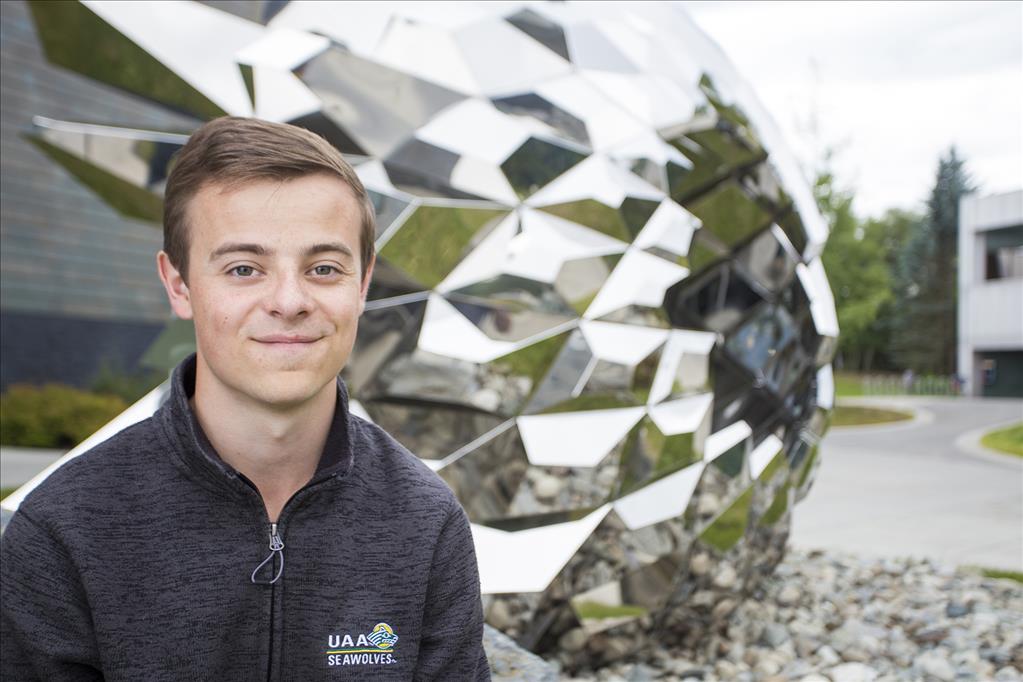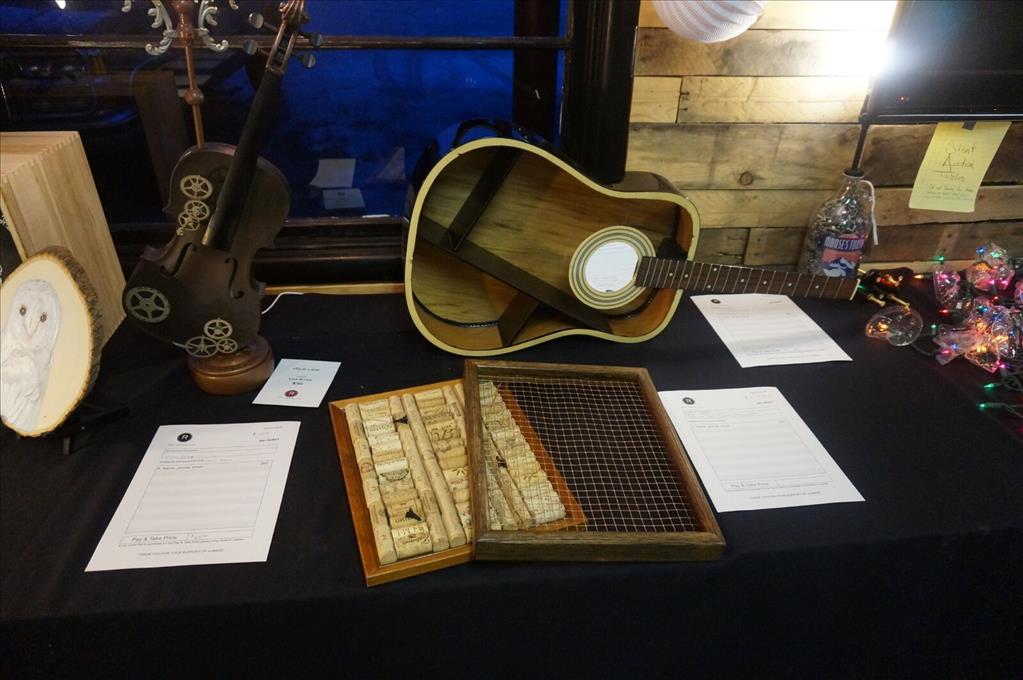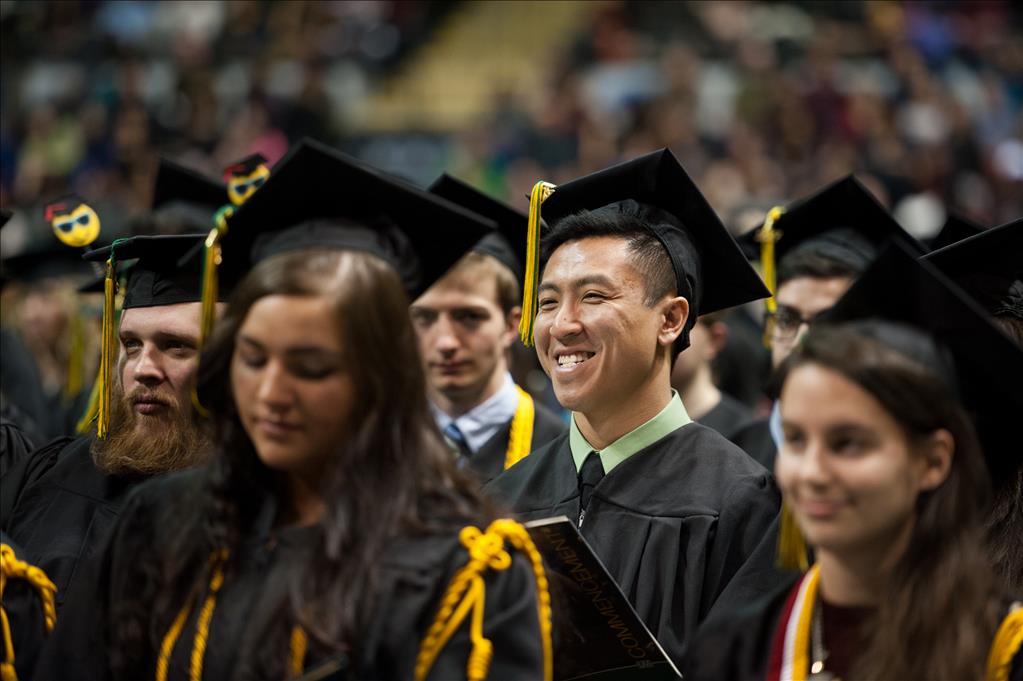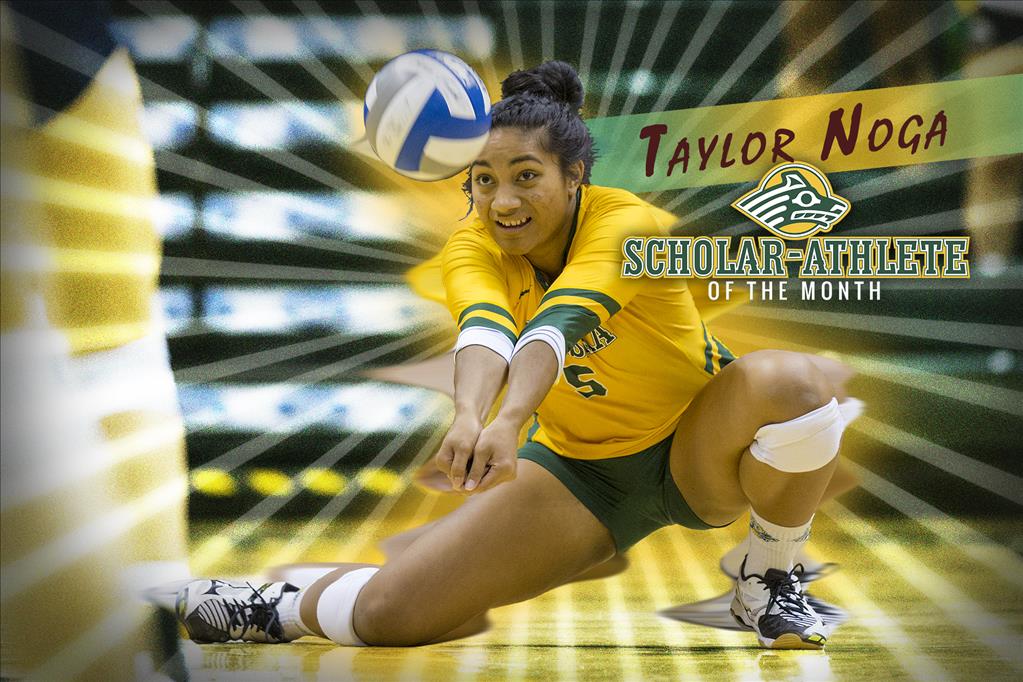UAA theatre major: ‘You have to be all in’
by Tracy Kalytiak |
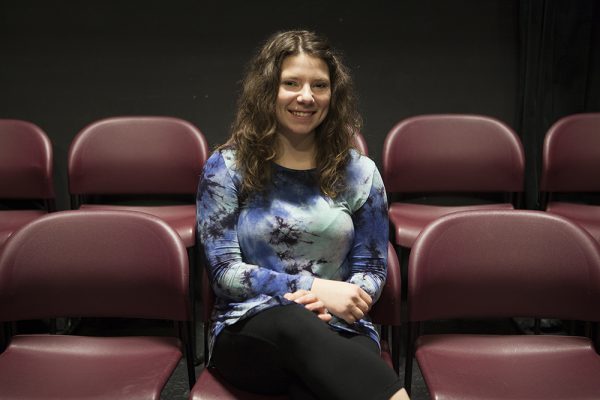
Back when she was a small child in Mat-Su, Katie O'Loughlin took gymnastics classes. The balance beam, vault and uneven bars events didn't appeal to her, but she really enjoyed the fourth event — floor. "My mom was like, let's try dance if you like floor," said Katie, who was 10 when she and her three older sisters switched to taking dance classes. Katie trained in ballet, tap, jazz, lyrical, hip hop, contemporary, modern, clogging, jazz, drill and pointe dance styles — "I grew up doing it all," she said. She danced throughout her high school years, traveling to festivals throughout Alaska and Outside. Now, Katie is majoring in theatre and minoring in dance at UAA, and expects to graduate in May. She recently made her directorial debut with "Middle Ground," her honors project, for which she received funding from the UAA Office of Undergraduate Research and Scholarship. Here, she talks about her life, vision, and what's ahead.
What initially brought you to UAA?
After high school, I tried to go to schools out of state and out of country for dance, and got accepted into some. But they didn't work out — visas didn't happen, money didn't happen. So I ended up taking a gap year spontaneously, and worked. Then, I decided to look online at what UAA has to offer.
What did you find?
I was looking at the theatre degree because I like performance so much and wanted to see what they have to offer for making performances happen. There was stage management and directing and stagecraft and lighting design and costume design and I was like, all those classes sound so fun; why don't I start taking classes in this degree and see if I like it. I met with [UAA Department of Theatre and Dance Chair] Dan Anteau and signed up to be a theatre major and on the same day I ran into [UAA Assistant Professor] Brian Jeffery and signed up to be a dance minor, and started off my journey. I did one semester and knew it was where I was supposed to be.
Why did it 'click' for you?
I wanted to learn what goes on behind the performance because I'd only ever performed. When I'm in the theatre, I love everything about it: I love the lights, the catwalks, the curtains, the space. I wanted to know more about this and learn how to put [productions] on myself. Now I'm a senior and I got that opportunity with this dance show to do what I came to school to do. I'm a theatre major with a technical emphasis: that means lights, sound, projections, costumes, stage — and then a dance minor.

Why did you move from dance to choreography?
I wanted to make productions happen instead of just being in them. I wanted to be a choreography, director, producer — a collaborator with other artists.
What did your pursuit of the degree do to assist you?
I think I always knew this was the direction I was headed; I just didn't quite know how to get there. This degree gave me that direction and allowed me to try multiple different things in this field until I decided on my own which path I really wanted to go down and focus on.
What fascinates you about your work?
I start with a blank slate every time and it's me and the people I'm working with that are just starting to draw on this blank slate. We can erase things if we don't like them, but we're just going to try. We get to impact people. I love speaking to people, whether that's speaking through movement or art or words. I love to make them think and make them feel.
What's the big-picture significance of art, in your opinion?
Dance and art allow people to step out of day-to-day realistic life and realize it isn't just the wake up, go to work, go home, eat dinner, go to bed and do it all again. There's more. There are people who are feeling what you're feeling, experiencing what you're experiencing. We're all dealing with this at the same time and there's still beauty in it. It's not mundane.
What effect has your work had on your life, in general?
The things I do on the stage have started to bleed into my day-to-day life. They've made it more exciting and more worth it. Now my life is a piece of art, you know? It's changed me as a person to be a performer, designer, and creator.
Inhabiting all these roles at once must be challenging!
This degree really pushes you to step into every aspect. They don't want you to be like, 'OK, I'm a lighting designer and only a lighting designer.' They require you to do lights and dip into sound and try costumes. It's all layered together: learning about one [skill] helps you understand the next one. It's a huge time commitment. You can't go half-hearted into this field — you have to be all in or it won't work.
How did you build 'Middle Ground'?
It's super easy in the dance world to put on a dance show and not have foundation to it — OK, go out and perform, here's music, do it. I knew I needed to have a concept, a vision, in order to be able to properly direct people.
What was that vision?
'Middle Ground' came out of this season I'd been in with school, where I felt like I'd been in the middle for so long without being able to see the end, see completion, see my goal finished. That has related to me in school and in life. We either focus too much on the past and let that be what our life is about or we've got to get to the future and do better. Life is so future-oriented that we don't allow ourselves to just be where we are and enjoy the people we're around and where we're at. The concept of 'Middle Ground' was just to learn to be present — to be hopeful there, content there — and find a home where you are.
With that said, life moves on. What plans look good to you now?
I just applied to get funding to do dance research in Cuba. So I'm waiting to hear back about that. I'd love to do that. Three weeks in Cuba where I get to do dance research. What a dream to do after I graduate. Past that, I want to go to grad school, work with choreographers I want to work with, collaborate with other artists here in Anchorage. I want to travel and perform at festivals — I'd love to bring a troupe to perform at the Edinburgh Festival in Scotland next August.
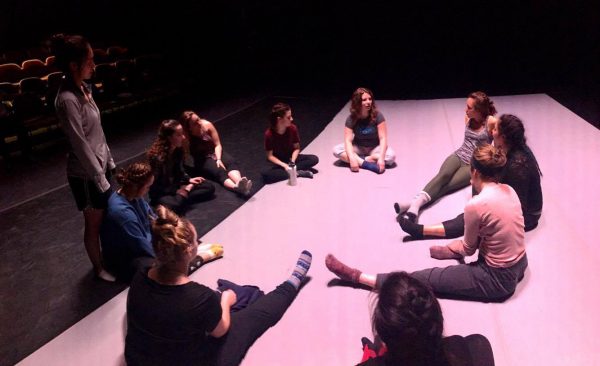
What collaborations do you envision?
I'll get an opportunity in April to collaborate with a percussionist who will perform live for us to dance to. That's the kind of thing I want to keep doing. Let's combine forces. And it doesn't even have to be art. What are other pathways, career fields I can collaborate with to build community and impact people.
Why do you want to go to grad school?
I need a terminal degree because I want to be a professor and teach at a university at the graduate level. I'm looking at the teachers out there, seeing who I would want to work with for the next three years, what they can help me with.
What do you need help with?
Being director and choreographer of Middle Ground showed me there's still so much I don't know about shows. I need help with experience, the foundational steps done. I just want help with being pushed.
Why do you want to make theatre and dance your life's work?
In this field you're always going to be learning, doing new things and making original work. It's exciting but also what's super hard about this. You can't go in totally prepared. You never know what's going to be thrown at you. You're on your toes all the time. It's so fun, and an exciting way to live life. It never gets boring.
Written by Tracy Kalytiak, University of Alaska Anchorage
[Editor's note: This article was originally published in February 2017. In October 2023, Katie O'Loughlin returned to UAA as the Department of Theatre & Dance's newest faculty member.]
 "UAA theatre major: ‘You have to be all in’" is licensed under a Creative Commons Attribution-NonCommercial 4.0 International License.
"UAA theatre major: ‘You have to be all in’" is licensed under a Creative Commons Attribution-NonCommercial 4.0 International License.










